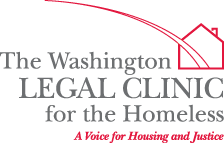This letter will be delivered to DC Council on Monday, July 9th. If your organization wishes to sign on to the letter, please email Amber Harding at amber@legalclinic.org by Monday, July 9th.
Dear Chairman Phil Mendelson,
Councilmember Anita Bonds,
Councilmember David Grosso,
Councilmember Elissa Silverman,
Councilmember Robert White, Jr.,
Councilmember Brianne K. Nadeau,
Councilmember Jack Evans,
Councilmember Mary M. Cheh,
Councilmember Brandon T. Todd,
Councilmember Kenyan McDuffie,
Councilmember Charles Allen,
Councilmember Vincent C. Gray, and
Councilmember Trayon White, Sr.
We, the undersigned organizations and individuals, urge you to vote “yes” on the D.C. General Resident Relocation Emergency Act of 2018 on July 10 to protect the health and safety of homeless children and families in the District of Columbia.
We support the closure of DC General, but only if it is done in a way that improves the conditions that families live in, protects the health and safety of residents, and ensures that there is enough shelter for all who need it. The newest iteration of the closure plan announced by Mayor Bowser in January of this year—to begin abatement and demolition of pre-1978 buildings surrounding the families while they still reside there and close DC General before all the replacement shelters are ready—does not center the needs of homeless families. Instead, it places the very families the closure of DC General is supposed to benefit at risk of harm from neurotoxins and from not having access to safe shelter or housing.
The amended plan to close DC General is not in the best interests of homeless families. We appreciate the efforts of Councilmembers Brianne Nadeau and Mary Cheh to continue active oversight of agencies under their purview, including requesting specific plans and updates on shelter capacity and construction of the new shelters. We believe that work is entirely consistent and complementary to the proposed emergency legislation—the entire Council must take decisive action now to prevent harm from occurring to families while you are on recess.
Objectives of the D.C. General Resident Relocation Emergency Act of 2018:
- Halt any abatement, demolition or deconstruction activity until all of the families have exited the campus.
The abatement and demolition of lead- and asbestos-filled buildings, one a mere 250 feet away, poses an unacceptable risk of harm to the families and children who reside in DC General family shelter. We have received very little information publicly about how DC will demolish the building. They have confirmed, however, that they will not use the most protective standards for lead abatement because it is not an occupied building. The agency is operating under outdated lead hazard definition standards that will not adequately identify hazards or protect the health and safety of workers or nearby homeless families. [1] Children and pregnant women may be at heightened risk of lead poisoning if that abatement and demolition is done to a nearby building while they still reside in the shelter, and adults are at risk of worsening health. Demolishing this building with so many families living in such close proximity also risks exposure to asbestos, mold and other toxins, increased rodent infestation, and the worsening of respiratory disorders or acute attacks of asthma.
- Ensure that families are relocated to safe, stable settings before the shelter is closed.
While uncertainty remains around the exact opening dates for some of the DC General replacement shelters, it is abundantly clear that only one shelter (Ward 4) will be open by the time the Administration intends to shutter DC General, no later than October 1.[2] There is much uncertainty about where the families living at DC General will go when the shelter closes and many of the hotels and motels currently used for family shelter are not safe and or habitable. We support requiring that families be moved into either replacement shelters or appropriate permanent housing prior to the closure of the shelter.
We also request an oversight hearing in September to address the following concerns:
- Whether abatement and demolition activities on the DC General campus are carried out to minimize the risk of harm to the women living at Harriet Tubman shelter and the men and women in the DC Jail. We recommend that DC must conduct abatement and demolition (after the families have left) by: 1) complying with the Renovation, Repair and Painting Rule, as recommended by the EPA in demolitions of pre-1978 buildings; 2) applying the new proposed EPA rule on lead-dust in order to both accurately identify potential hazards and achieve clearance of the site on a daily basis, 3) utilizing lead and asbestos air monitors to prevent permanent neurological harm and disability to residents and workers, and 4) complying with OSHA and TSCA requirements that protect the health of residents and workers, and other precautions as necessary.
- Whether the Mayor’s plan to meet the emergency shelter needs of all eligible homeless families is sufficient. We recommend that the Council request a written plan that includes the projected need and the available number of contracted units of emergency family shelter or hotels, including locations, on a monthly basis from now until all the replacement shelters are projected to be online. We also recommend that the Council request monthly updates on this plan, including updates on the progress of DC General replacement shelter construction.
We thank you in advance for your rigorous oversight and willingness to take action to ensure that the well-being of DC families experiencing homelessness is centered in the closure of DC General.
Sincerely,
ACLU of the District of Columbia
A Community Voice
Amara Legal Center
Emily Benfer, Distinguished Visiting Scholar & Senior Fellow, Yale Law School, Solomon Center for Health Law & Policy*
Bread for the City
Break the Cycle
Carla Campbell, MD, MS, Las Cruces, NM
Yael Cannon, Visiting Associate Professor and Director, Georgetown University Health Justice Alliance Law Clinic*
Chesapeake Climate Action Network (CCAN)
Children’s Law Center
Collective Action for Safe Spaces
DC Abortion Fund
DC Action for Children
DC Hunger Solutions
D.C. for Democracy
DC for Reasonable Development
DC Statehood Green Party
District Alliance for Safe Housing (DASH)
DV LEAP
Peter Edelman, Carmack Waterhouse Professor of Law and Public Policy and Faculty Director, Georgetown Center on Poverty and Inequality*
Empower DC
Deborah Epstein, Professor, Co-Director, Georgetown University Law Center Domestic Violence Clinic*
Equal Rights Center
Fair Budget Coalition
The Father McKenna Center
Vicki Girard, Professor of Law, Legal Practice and Co-Director, Georgetown University Health Justice Alliance*
Good Faith Communities Coalition
Jews United for Justice
Lisa Kessler, Program Manager, Georgetown University Health Justice Alliance*
Legal Aid Society of the District of Columbia
Legal Counsel for the Elderly
Eileen Moore, Associate Professor and Medical Director, Georgetown University School of Medicine HOYA Clinic and Georgetown University Health Justice Alliance*
National Coalition for the Homeless
National Housing Law Project
National Law Center on Homelessness and Poverty
Jerome A. Paulson, MD, FAAP, EnviroHealthDoctor, LLC, Professor Emeritusof Pediatrics and of Environmental & Occupational Health, George Washington University*
People for Fairness Coalition
Positive Force DC
The Public Defender Service for the District of Columbia
Public Justice Center
Florence Wagman Roisman, William F. Harvey Professor of Law and Chancellor’s Professor, Indiana University Robert H. McKinney School of Law
Sargent Shriver National Center on Poverty Law
Stop Police Terror Project DC
Washington Lawyer’s Committee for Civil Rights and Urban Affairs
Washington Legal Clinic for the Homeless
We Are Family Senior Outreach Network
*University affiliation listed for identification purpose only
[1] The EPA was under court order to update its lead abatement regulations to comport with medical science and public health guidelines. On June 22, the EPA issued proposed regulations, but they are not yet in effect and may not go into effect until Building 9 has already been demolished: https://www.epa.gov/newsreleases/epa-proposes-strengthening-dust-lead-hazard-standards-reduce-exposures-children.
[2] The recent submission of contract modifications for the Wards 7 and 8 replacement shelters “extend[s] the Project’s substantial completion date to October 1, 2018.” The Administration testified that it can take a month or more after this date for the shelters to be ready for families to move into them. See http://lims.dccouncil.us/Download/40579/CA22-0559-Introduction.pdf, http://lims.dccouncil.us/Download/40589/CA22-0569-Introduction.pdf.






Time for the truth to guide us. Support Trayon White”s emergency bill on dc general
This needs your attention now….
Vote…yes
Vote yes. Please have a Heart . Don’t add to the Homeless population .